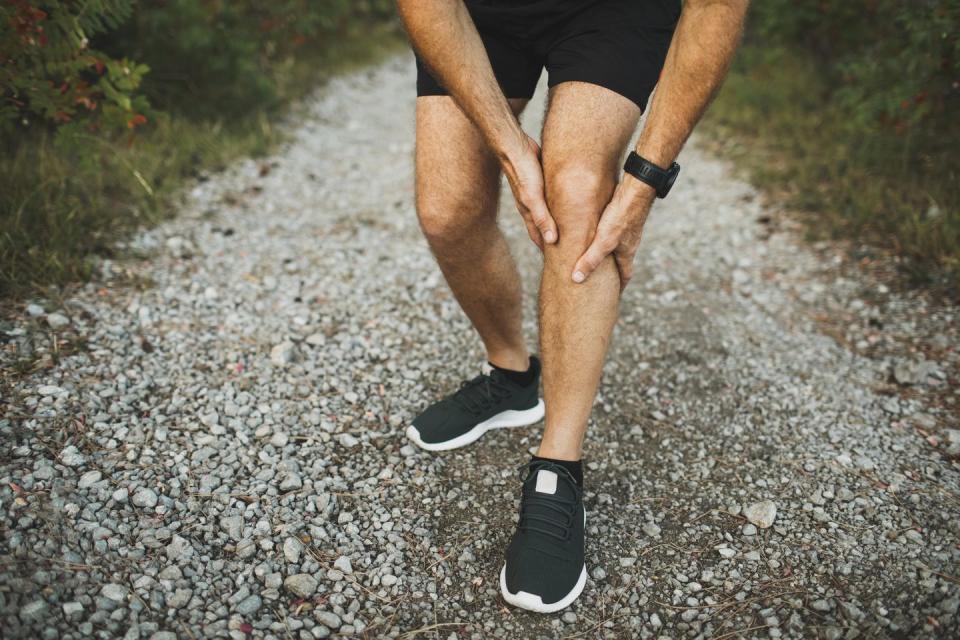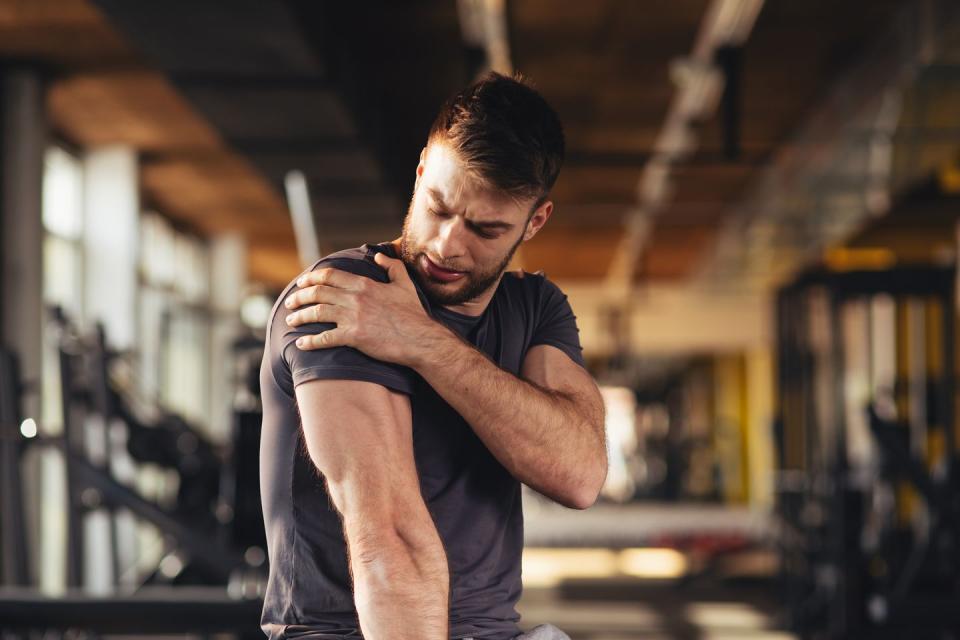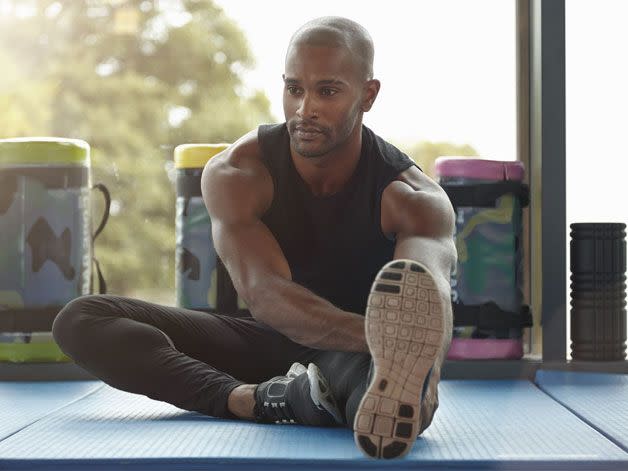'Should I Work Out with Sore Muscles?' We Asked the Experts

'I don't have enough time'. 'My hangover is killing me'. 'I forgot my headphones'. Excuses for avoiding the gym are easy to find, but in the case of sore muscles, however, the matter is more nuanced. If you have acute DOMS (delayed onset muscle soreness) after an intense workout, will you be doing more damage if you go again?
'Soreness is a good sign,' says Jim Pate, physiologist at the Centre for Health and Human Performance. The inflammatory response to the tiny tears you’ve caused in your muscles is what drives your body to adapt, so it doesn’t get overloaded next time. 'You should be satisfied you achieved significant enough overload.'
Well, that just means you've earned a lie-in, or extra evening hours in front of the telly, right? Not quite. The experts weigh in so that you can make the right decision and speed up your recovery.

The Experts Verdict
Men's Health spoke to experts Daine McKibben Rice MSc, Sports Therapist and Owner of Validus Sports Injury Clinic and Emily Simpson BSc, of Better You and answered all your DOMS FAQs.
What Are DOMS?
McKibben Rice: 'DOMS [delayed onset muscle soreness], is a response from micro trauma to the muscle and connective tissue as a direct result of exercise or loading. This damage. combined with our bodies natural inflammatory response, results in muscle soreness or DOMS. McKibben Rice continues that contrary to popular belief, this inflammation isn't necessarily a bad thing and could help your recovery and muscle gain. However, a constant increase in this inflammatory response is to be avoided.
Do Sore Muscles Mean Growth?
Apparently not says Simpson: 'Sore muscles do not equate directly to muscle growth and a lack of soreness does not indicate no growth. In response to muscle trauma, the body uses satellite cells to fix the tears and build them up over time leading to muscle growth and protecting against future damage.'
The pain we feel after training must be followed by adequate recovery in order to see the muscle gain we desire.

Should We Train When Sore?
Spoiler alert: the answer is not straightforward. 'Training with 'sore muscles' can be very subjective,' says McKibben Rice. 'Would I recommend someone to isolate a specific muscle group with heavy loading while they are experiencing muscle soreness 48 hours after a hard session? No. As it’s not going to be optimal for the muscle tissue and subsequent recovery process.' However, McKibben Rice explains that the more sensible option may be light exercises that will increase blood flow or a sports massage. This type of exercise is called 'active recovery'.
'Active recovery is far more efficient at attaining the desired effect, as you can gain improved ROM and improved blood flow, which means fresh nutrients will be pumped into the site and this will lead to a more efficient recovery. It can be felt instantaneously, with less muscle soreness usually a direct bi-product of this.'

Simpson echos these recommendations: 'Generally, it is safe to work out with slight aches, but 'active recovery' can be most beneficial. Light resistance exercises or low intensity cardio like walking or swimming are good examples. However, more intense pains suggest a rest day may be more favourable, allowing your body to recover and reduce the risk of overtraining. '
So, as much as you may want to swerve any activity altogether, or skip your rest days in lieu of your usual heavy training, aiming for the middle ground could be the recovery sweet spot. Adjust the recommendations from our experts to suit your body. If you are in absolute agony, of course a rest day would be sensible. However, some 'active recovery' like a light circuit, jog, or even a brisk walk could be just what the doctor ordered.
See you tomorrow, bright and early.
You Might Also Like

 Yahoo Sport
Yahoo Sport 






































